We get lots of emails asking us about our products and the supply chains that exist to create them. We absolutely love that our customers are so interested in where their products come from.
For Organic September, we thought we’d take the opportunity to write a bumper response to some of your questions about organic cotton – the soft, fluffy, important crop that’s a key material in Natracare products.
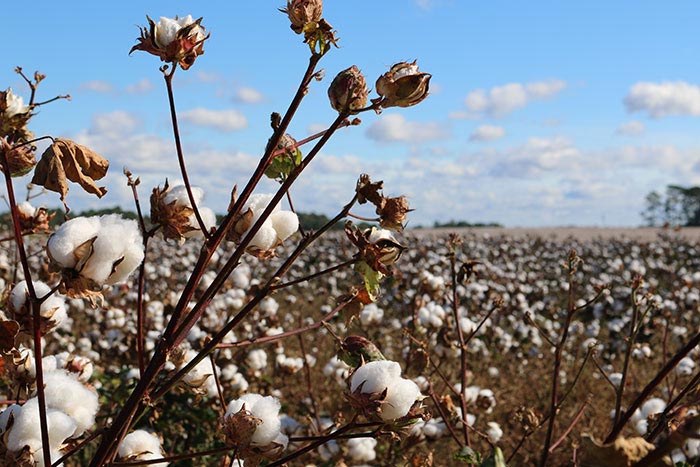
Where is organic cotton grown?
Conventional cotton is grown in 100 countries, and on around 2.5% of the world’s agricultural land. Only 0.7% of the total amount of cotton grown is organic, across 18 countries.
Organic cotton is grown in India, China, Kyrgyzstan, Tajikistan and others. The organic cotton used in Natracare products comes from Pakistan and Turkey.
Around 100 million households in some of the world’s poorest countries are dependent on cotton farming.
Is organic cotton better for farmers?
Absolutely – organic cotton is much better for farmers. Organic cotton farmers have more control over their livelihoods and are not exposed to dangerous chemicals on a daily basis.
95% of the global cotton seed market is controlled by Monsanto-Beyer – the recently-merged GMO and agricultural chemical behemoth. Conventional cotton farmers are often locked into contracts which dictate the seeds they grow and the chemicals they spray on their land – and those chemicals are dangerous. An estimated 77 million agricultural workers suffer from pesticide poisoning each year.
Organic cotton farmers aren’t exposed to these risks because organic agriculture doesn’t use chemical sprays or GM seeds – a win-win-win situation for farmers, the environment and consumers!
And because artificial fertilisers aren’t used, organic cotton crops must be rotated with food crops, which enriches soil for future harvests and provides farmers and their families with another source of food and income.
You can read about the nasty chemicals used on conventional cotton crops here.
Certified organic
Did you know that all the cotton Natracare uses is 100% certified organic to the Global Organic Textile Standard (GOTS)?
Find out more
Is organic cotton better for the environment?
In a word – yes, organic cotton is a lot better for the environment!
Agriculture in organic farming is based on four principles of: health, ecology, fairness and care. These principles guide organic farmers to work with nature, not against it.
Organic cotton farming is no exception to this brilliant ethos – organic cotton crops aren’t sprayed with toxic insecticides and herbicides, which means that the soil isn’t contaminated, and surrounding water sources and wildlife are kept safe and fertile.
Organic cotton growing produces up to 94% less greenhouse gas emissions than conventional cotton. In fact, according to Textile Exchange, the overall energy demand of organic cotton is 60% lower.
You can discover the many other brilliant environmental benefits of organic cotton here.
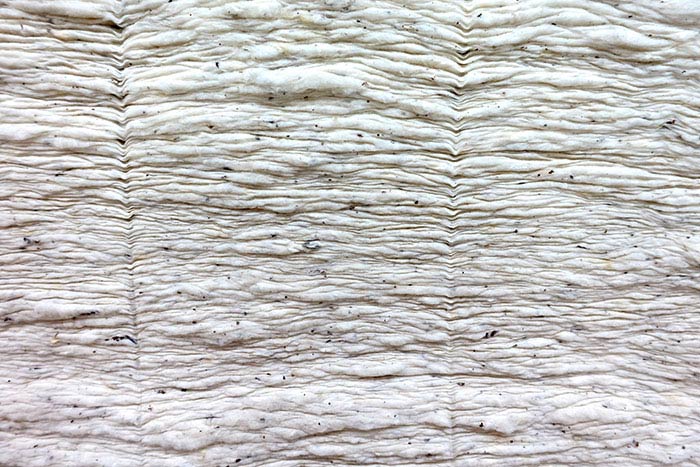
Is organic cotton biodegradable?
Yes, organic cotton is biodegradable. When cotton is not mixed with anything else, it remains a totally natural product and will biodegrade over time. If organic cotton is put into the right environment (for example, a home composting heap) it will biodegrade more effectively, but regardless of where it is kept, in hundreds of years, it won’t be hanging around like plastic.
We are very proud to say that Natracare products are compostable. Other leading conventional sanitary products often contain a blend of cotton and plastic-based man-made fibres. These do not decompose; instead they just break down into smaller particles, and will remain in the environment indefinitely.
Learn more about plastic in period products here.
Why use organic cotton tampons and pads?
The average woman uses 11,000 pads or tampons in her lifetime. That’s a lot of cotton – and the type of cotton used in those products has far reaching consequences for the environment and the people that are involved in its production.
Natracare organic cotton tampons and pads are plastic free and biodegradable. And because they’re organic, they’re not full of toxic chemicals which could be absorbed by women’s most delicately balanced parts.
Certified Organic
Period Products
Find your nearest store
In 2015, an Argentinian study found the herbicide, glyphosate in 85% of non-organic tampon samples. Glyphosate is found in Monsanto’s weedkiller, Roundup, and is sprayed on conventional cotton crops across the world.
That same year, the World Health Organization’s International Agency for Research on Cancer announced that glyphosate is a ‘probable carcinogen’, based on strong evidence that it causes DNA damage in human cells.
Is that a chemical that you would want in or near your vagina?
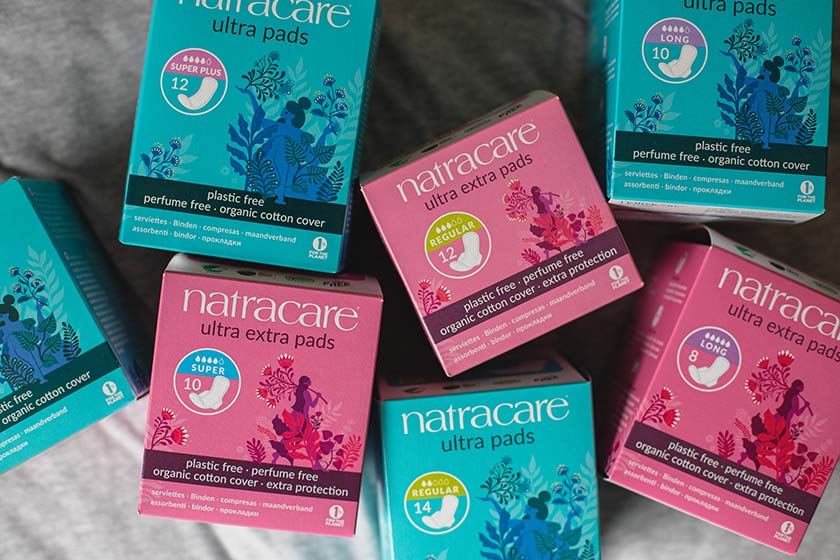
What else is organic cotton used for?
Organic cotton can be used for anything and everything! (Well, almost.)
Our personal favourite products are obviously our organic tampons and organic wipes.
But other like-minded green companies are producing organic cotton nappies, beautiful clothes for children and adults, bed linen, towels, health and beauty products such as cotton wool balls, pads and buds – this is not an exhaustive list! There are so many businesses selling wondering organic cotton products.
Check out Seasalt – one of our favourite organic cotton fashion brands and Green Fibres, who sell a broad range of products made from eco-fibres. And Lily & Mortimer sell beautiful organic cotton bedding – worth snuggling up into!
Organic September is the perfect time of year to try out some new organic cotton products – especially now that you know about all of the benefits!
Please don’t hesitate to get in touch if you have any more questions about organic cotton or any other material that we use in our product range.
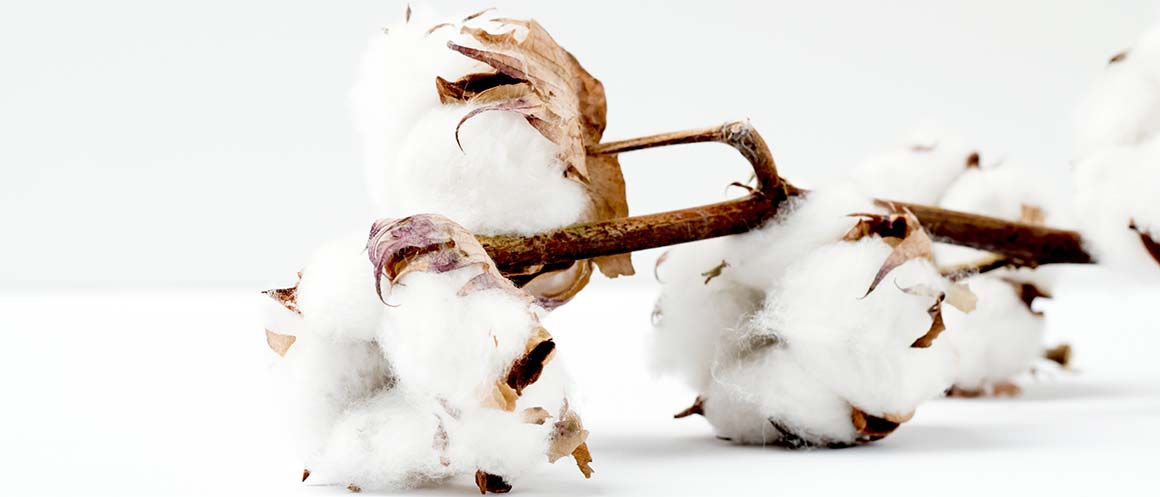
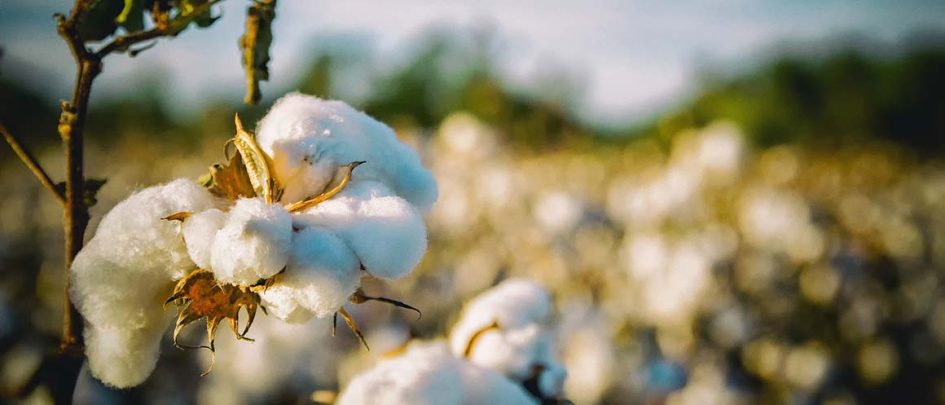
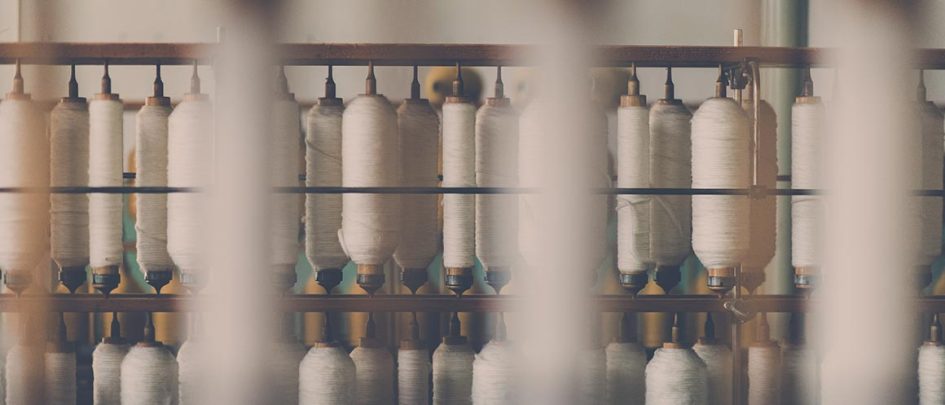
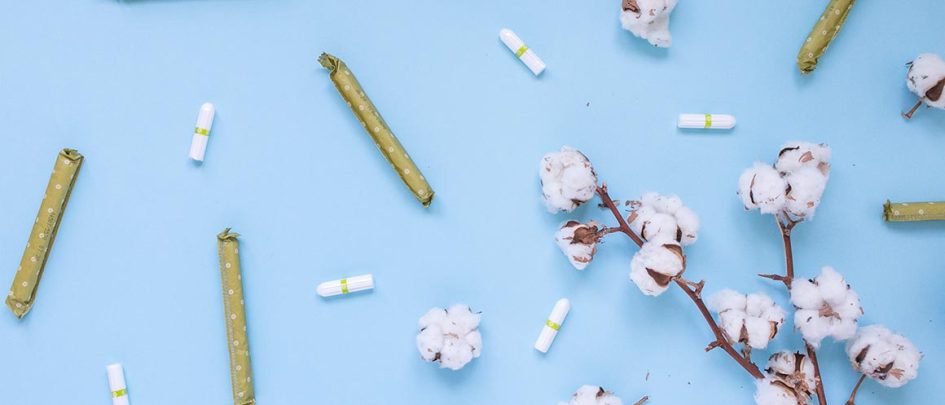






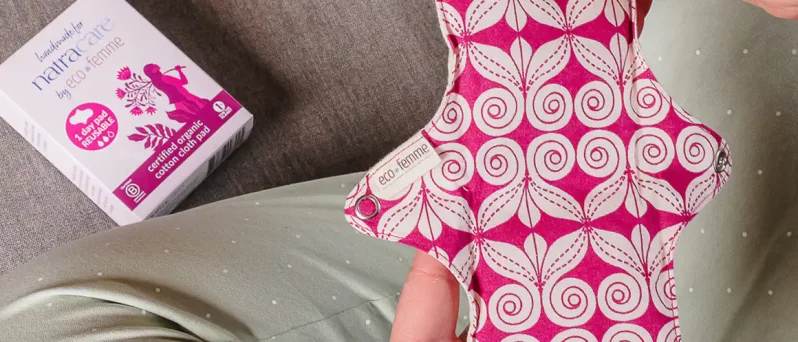

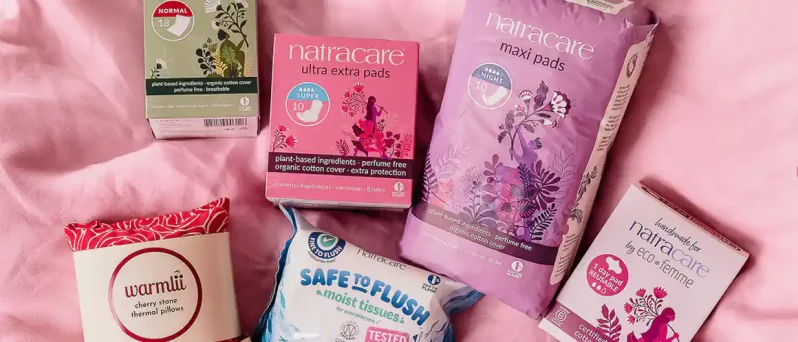
Where is natracare made?
Natracare is manufactured in the EU – each pack states the country of origin